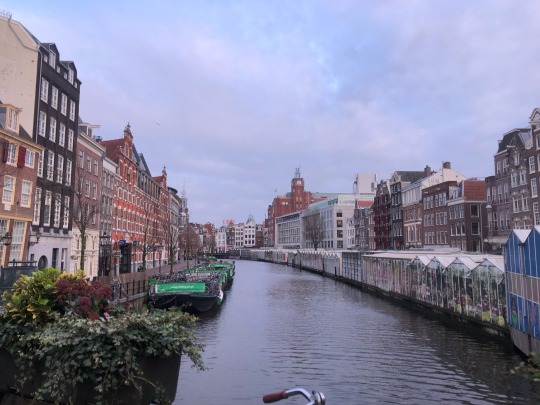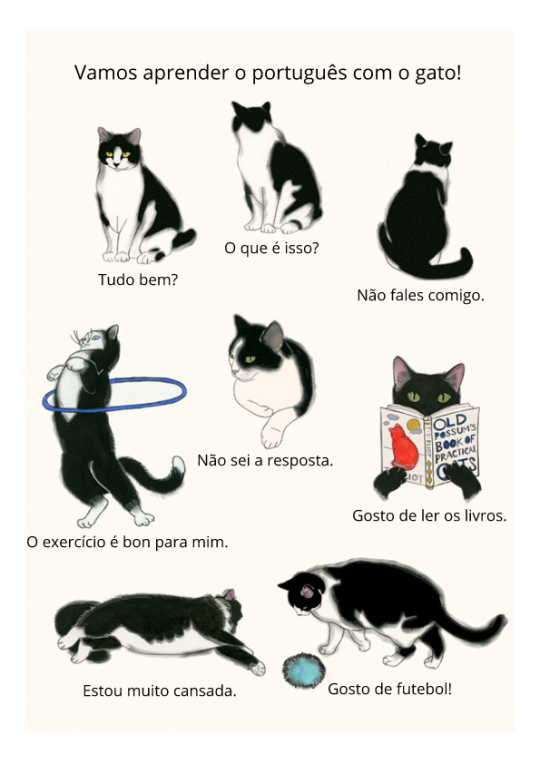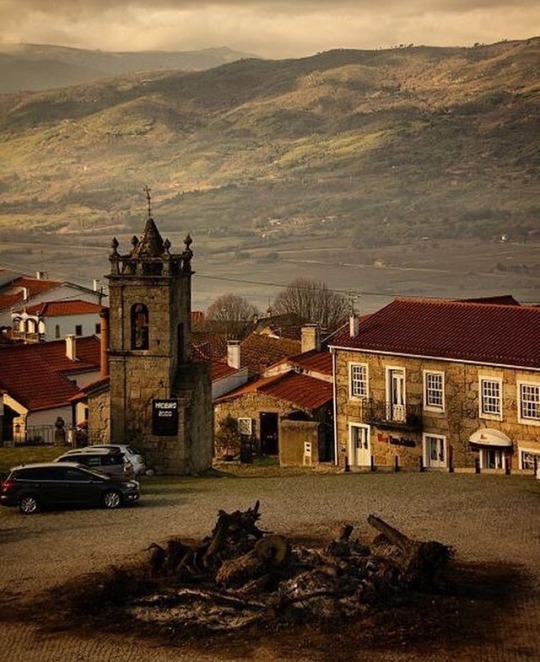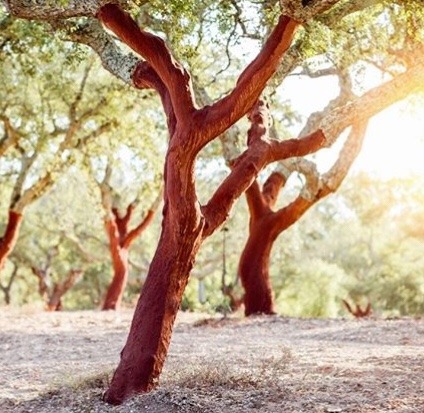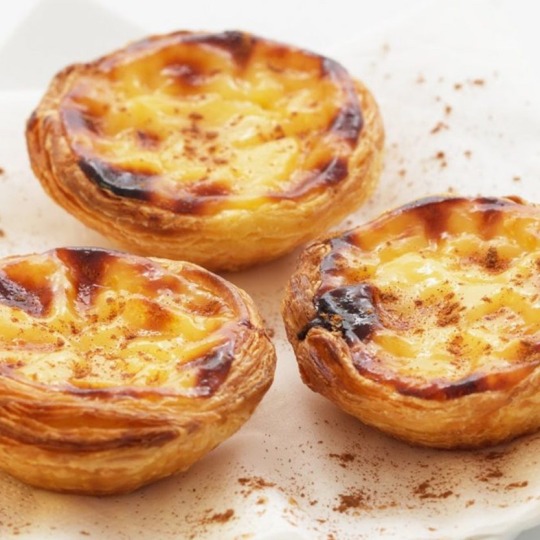Text
I need help
Hello everyone,
This is very uncomfortable to share but at this point, I have to.
I vaguely mentioned it to explain why I had changed my @ again and only explained it fully to a few private students but I've had a stalker for a while and it's turned into some type of erotomania where the guy is convinced I'm madly in love with him, has been sitting in his car in front of my building, spying on me on social media, sending me flowers, getting in touch with former coworkers, compiling his thoughts in a diary that he sends me once in a while (where he built a life where we have three sons that already have names and I'm a housemaker) and after realising that I'm seeing someone has now threatened to hurt him and slashed the tires of his car that was parked at his house 20mn away last night.
The popo is not helping because he hasn't done anything illegal yet and we can't prove he's the one who damaged the car therefore they won't intervene until he actually does something major. Clown emoji.
Now I need to move before he breaks in and/or I'm fully sleep-deprived. In the past two months, I, unfortunately, lost a portion of my income after several students had to take breaks or stop lessons at the same time and being a freelancer I'm not currently in a position where my applications would be taken seriously.
So here's my offer: not only I'm of course available for long-term tutoring, but if this is not something you can do at the moment I would be happy to give you intensive tutoring during your holiday break. For example, depending on your situation, 1h a day for five days would be either 100 or 175 euros. Can be more or fewer hours, more or fewer days, just one weekend, you're in charge of the details.
All info + student reviews are here. If you wanted to help differently, my Paypal is isthisnox at pm dot me (sending to a friend to avoid taxes).
Thank you for reading!
259 notes
·
View notes
Text

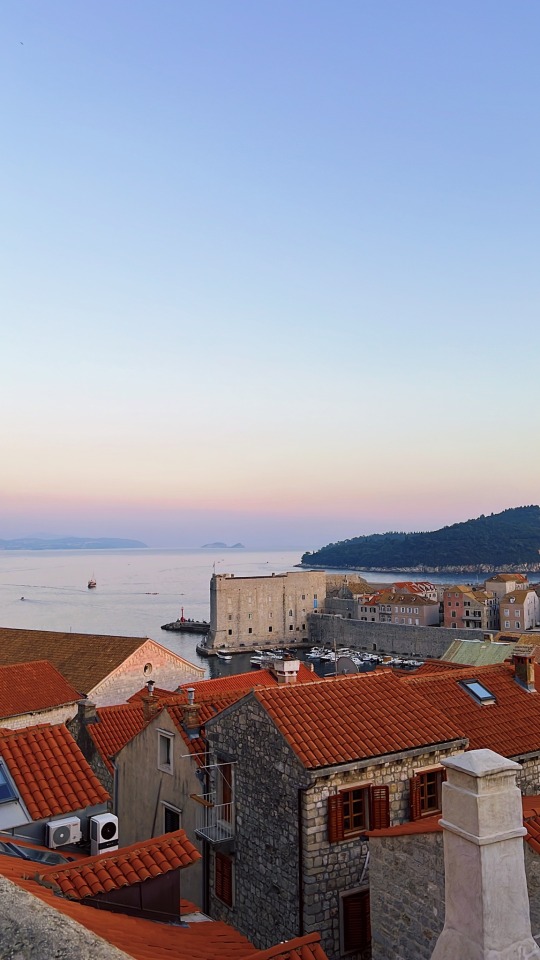
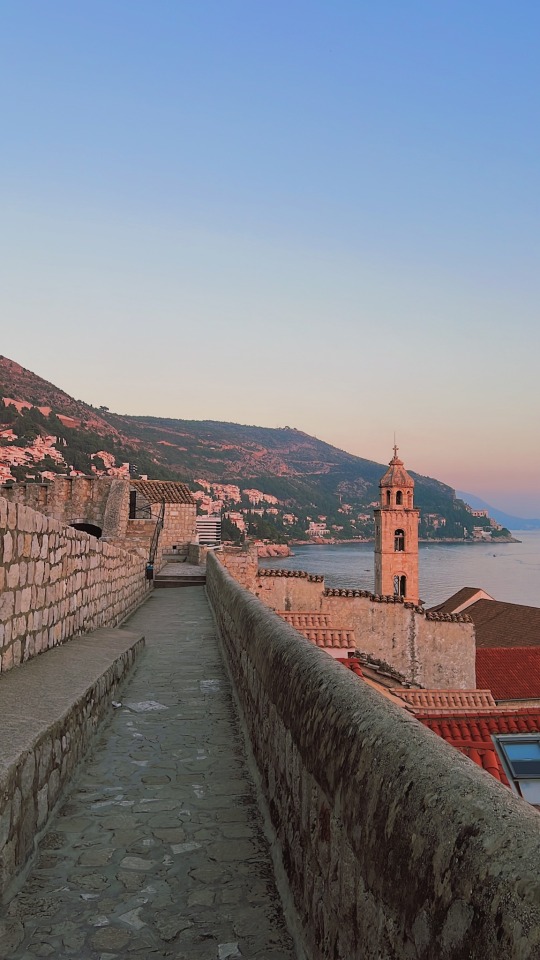

I recently went to Dubrovnik and it was beautiful
68 notes
·
View notes
Text
french cities #2
Lyon, la capitale des Gaules (old city, v pretty)

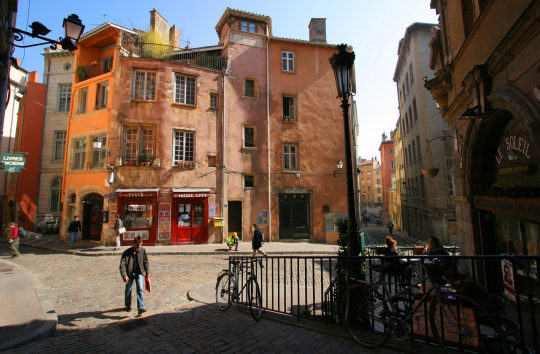

Nîmes, la Rome française (the french Roma) :

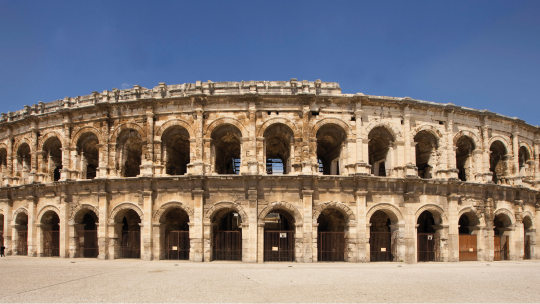

Reims, la cité des rois (the Kings’ estate) :



Nice, “Nissa la bella” :
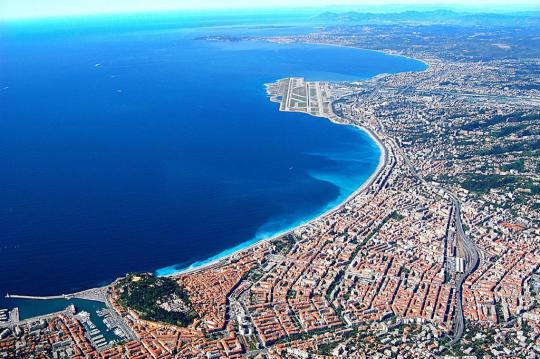

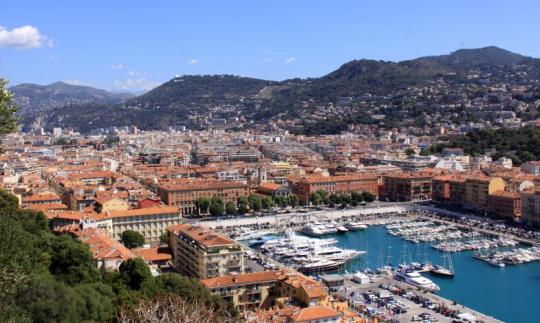
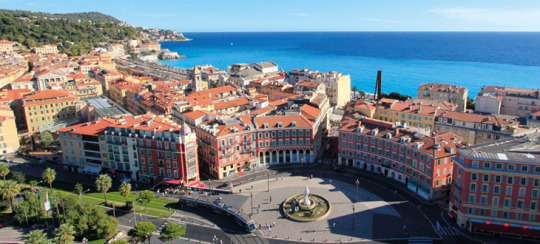
Amiens, la petite Venise du Nord :



Annecy, la petite Rome savoyarde :
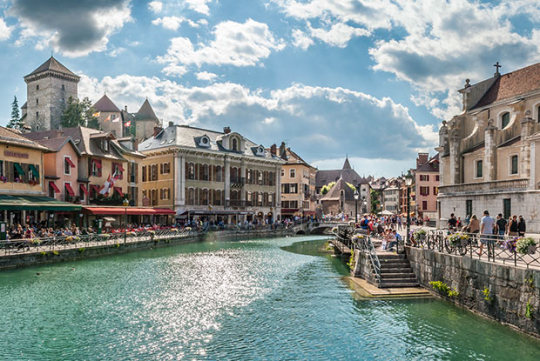
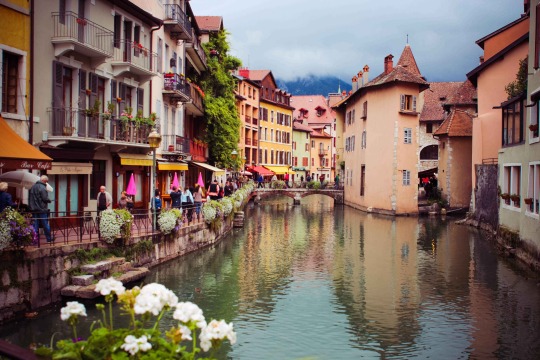


Angers, l’Athènes de l’Ouest :


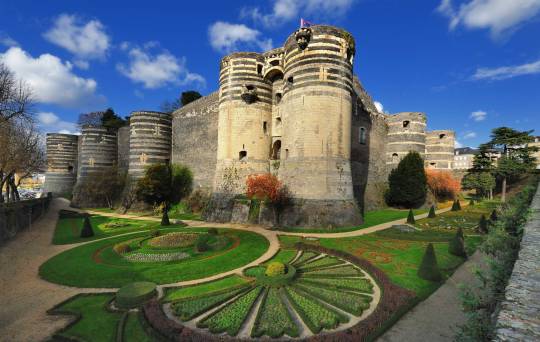
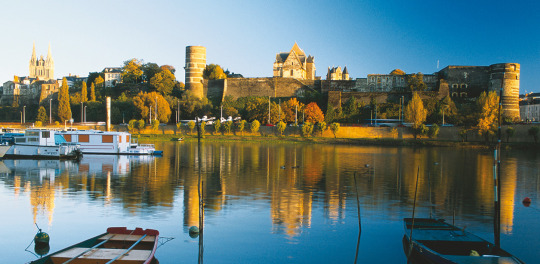
679 notes
·
View notes
Text
how we really speak
after yesterday’s ask i realised that lots of you didn’t know either how lax french is nowadays. so here’s my own little guide. remember this is spoken, private french and doesn’t apply to formal situations.
- we don’t use négations. we say ‘je sais pas’ (i don’t know), ‘il en veut pas’ (he doesn’t want it), on a pas à le faire (we don’t have to do it),
- speaking of which, we don’t really use ‘nous’ either. we use ‘on’ instead. so ‘we’ve arrived’ becomes ‘on est arrivé-es’ or ‘shall we go’ becomes ‘on y va?’,
- speaking of which, our questions are often affirmative sentences with a question mark (understand : a high-pitched tone) at the end : ‘are you coming’ is ‘(est-ce que) tu viens?’ and ‘do you want one’ is ‘(est-ce que) t’en veux un-e?’,
- speaking of which, we chew words. when followed by words starting with a consonant, personal pronouns (in my example sujet and COD) can lose their last letter : ‘i’m telling you!’ is ‘j’te l’dis!’ (or, actually, ‘ch’te l’dis’), or ‘plus’ (more, anymore) becomes ‘pu’ (chais pu), ‘puis’ (then) becomes ‘pi’ (et pi c’est tout)…,
- speaking of which, we’re lazy. so ‘je’ can be ‘che’ (chais pas), ‘il’ can be ‘y’ (look, there’s a cat : r’garde, y’a un chat!) and grunt : lots of ‘euh’ (uh), ‘ah’, ‘bah’ (: hesitation), ‘ben’ (: well), ‘hein’ (: tf?) and ‘rhooo’ or ‘rhaaa’ (: displeasure) ; we often start sentences with ‘but’ : ‘mais tu saoules!’ (you’re annoying),

- speaking of which, on top of dropping négations, we can drop pronouns, even though it’s a bit rarer. ‘you’re being a pain in my ass’ should be ‘tu me fais chier’ because that person is annoying you specifically, but we can say ‘tu fais chier’, maybe to make it universal, after all we are dramatic,
- speaking of which, we swear a lot and are quite sarcastic, use irony very often. when someone managed to do something we find easy, we’ll go with something like “aaah, putain, t’es un as, toi!” (you’re a real champ),
- speaking of which, we repeat (personal) pronouns - at the beginning or the end of our sentences. when asked a question, we’re likely to answer with ‘moi, j’aime bien les films d’action’ aka ‘me, i prefer action movies’ and go ‘qu’est-ce qu’il en penserait, lui?’ : ‘what would he think, him?’ (tonic pronouns, careful!),
- speaking of which, we like to use a mode called conditionnel to indicate a wish or an hypothesis. so lots of ‘si j’avais su, j’aurais dit oui’ (had i known, i’d have said yes), ‘j’aimerais bien pouvoir-’ (i wish i could-), etc,
- speaking of which, we add useless words : bien (j’aimerais bien), petit (un petit peu : a little bit), très (c’est très vrai : it’s very true), trop (je ne sais trop : i don’t really know), ça (c’est quoi, ça? : what’s this, this?)…

speaking of which, let’s stop before you all get disgusted and unfollow me. cya!
9K notes
·
View notes
Text
Spotted on Twitter

If you have twins you can't call it Justin because there are two

Lenin every two years:
Feeling like going back to Russia and fuck things up

We need a Tripadvisor but for men, imagine the time we'd save girls
- Cheated on me with his colleague Karen
- Cums after three minutes
- Is married
- Never brushes his teeth
*GuyAdvisor*

The guy is named Pringles and tweets about ships

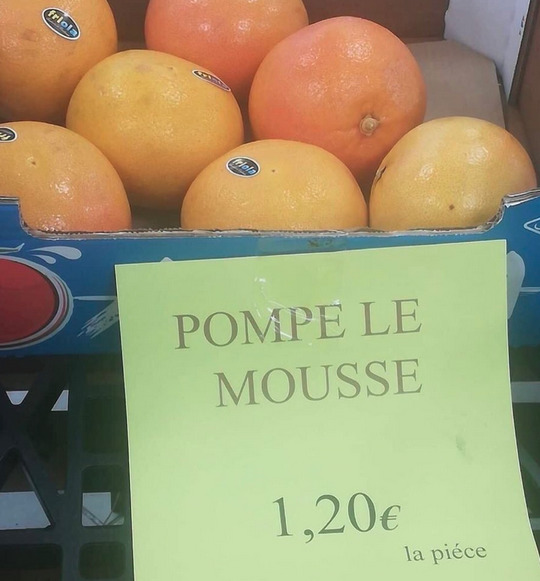
Captain Hook after several weeks at sea
I've been laughing for ten minutes
"Give a handjob to the sailor" (instead of Pamplemousse/Grapefruit)
130 notes
·
View notes
Text
Spotted on Twitter
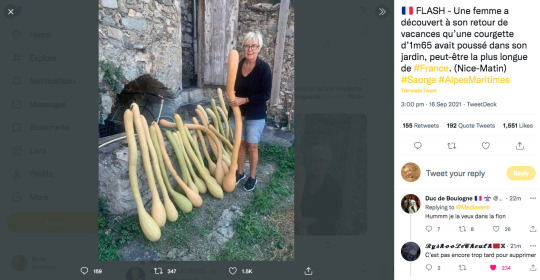
Flash - a woman came back from a vacation and discovered that a 5'5 courgette grew in her garden, maybe the longest in France
Hmm I want it in my anus
It's not yet too late to delete
68 notes
·
View notes
Text
Reblog and put in the tags your comfort song
614 notes
·
View notes
Text
625 words you have to know in European Portuguese!
Olá pessoal,
I made this list like one month ago and it took me quite some time, so don’t hesitate to check out the list and the Memrise course!
This list is based on this list
OS ANIMAIS (ANIMALS)
o animal | animal
o cão | dog
o gato | cat
o peixe | fish
a ave (o pássaro)* | bird
a vaca / o boi | cow / bull
o porco | pig
o rato | mouse
o cavalo | horse
o animal | animal
O TRANSPORTE (TRANSPORTATION)
o comboio | train
o avião | plane
o carro | car
o camião | truck
a bicicleta | bicycle
o autocarro | bus
o barco | boat
o navio | ship
o pneu | tire
a gasolina | gasoline
o motor | engine
o bilhete | ticket
o transporte | transportation
A LOCALIZAÇÃO (LOCATION)
a cidade | city
a casa | house
o apartamento | apartment
a rua | street / road
o aeroporto | airport
a estação de comboios | train station
a ponte | bridge
o hotel | hotel
o restaurante | restaurant
a granja | farm
o tribunal | court
a escola | school
o escritório | office
o quarto | room
a vila | town
a universidade | university
o clube | club
o bar | bar
o parque | park
o acampamento | camp
a loja | shop, store
o teatro | theatre
a biblioteca | library
o hospital | hospital
a igreja | church
o mercado | market
o país | country
o edifĩcio | building
o solo | ground
o espaço | (outer) space
o banco | bank
a localização | location
A ROUPA (CLOTHING)
o chapéu | hat
o vestido | dress
o fato | suit
a meia | skirt
a camisa | shirt
a t-shirt | t-shirt
as calças | pants, trousers
os sapatos | shoes
o bolso | pocket
o casaco | coat
a nódoa | stain
a roupa | clothing
AS CORES (COLOURS)
vermelho | red
verde | green
azul claro | light blue
azul escuro | dark blue
amarelo | yellow
cor de rosa | pink
laranja | orange
negro | black
branco | white
cinzento | grey
a cor | colour
AS PESSOAS (PEOPLE)
o filho | son
a filha | daughter
a mãe | mother
o pai | father
os pais | parents
o bebé | baby
a mulher | woman
o homem | man
o irmão | brother
a irmã | sister
a famĩlia | family
o avô | grandfather
a avó | grandmother
o marido | husband
a esposa | wife
o rei | king
a rainha | queen
o presidente | president
o vizinho | neighbor
o menino | boy
a menina | girl
a criança | child
o adulto | adult
o amigo | friend
a vítima | victim
o jogador (m.) | player
o f�� (m.) | fan
a multidão | crowd
a pessoa | person
O EMPREGO (JOB)
o professor (m.) | teacher
o aluno | student
o médico | doctor
o paciente | patient
o empregado (m.) | waiter
o secretario (m.) | secretary
o sacerdote / o padre | priest
a policía | police
o exército | army
o soldado | soldier
o artista | artist
o autor (m.) | author
o gerente | manager
o jornalista | reporter
o ator (m.) | actor
o emprego | job
A SOCIEDADE (SOCIETY)
a religião | religion
o paraíso | heaven
o inferno | hell
a morte | death
o medicamento | medicine
o dinheiro | money
o dólar | dollar
a conta | bill
o casamento | marriage
a equipa | team
a raça | race
o sexo | sex (the act)
o sexo | sex (gender)
o homicídio | murder
a prisão | prison
a tecnologia | technology
a energia | energy
a guerra | war
a paz | peace
o ataque | attack
a eleição | election
a revista | magazine
o jornal | newspaper
o veneno | poison
a pistola | gun
o desporto | sport
a corrida.| race (sport)
o exercício | exercise
o baile | ball
o jogo | game
o preço | price
o contrato | contract
a droga | drug
o sinal| sign
a ciencia | science
Deus | God
A ARTE (ART)
a banda, o grupo musical | band
a canção | song
o instrumento | instrument
a música | music
o filme | movie
a arte | art
AS BEBIDAS (BEVERAGES)
o café | coffee
a chã | tea
o vinho | wine
a cerveja | beer
o sumo | juice
a água | water
a leite | milk
a bebida | beverage
A COMIDA (FOOD)
o ovo | egg
o pão | bread
a sopa | soup
o bolo | cake
a torta | pie
o frango | chicken
a carne de porco | pork
a carne de vaca | beef
a maçã | apple
a banana | banana
a laranja | orange
o limão | lemon
o milho | corn
a arroz | rice
o óleo | oil
a semente | seed
a faca | knife
a colher | spoon
o gorfo | fork
o prato | plate
a chávena | cup
o pequeno-almoço | breakfast
o almoço | lunch
a jantar | dinner
o açúcar | sugar
o sal | salt
a garrafa | bottle
a comida | food
A CASA (HOUSE)
a mesa | table
a cadera | chair
a cama | bed
o sonho | dream
a janela | window
a porta | door
o quarto | bedroom
a cozinha | kitchen
a casa de banho | bathroom
o lápis | pencil
a caneta | pen
a foto | photograph
o sabão | soap
o livro | book
a página | page
a chave | key
a tinta | paint
o cartão | letter
a nota | note
a parede | wall
o papel | paper
o teto | ceiling
a piscina | pool
o cadeado | lock
o telefone | telephone
o jardim | garden
o pátio | yard
a agulha | needle
a bolsa | bag
a caixa | box
o presente | gift
o anel | ring
a ferramenta | tool
A ELECTRÓNICA (ELECTRONICS)
o relógio | watch
o candeeiro | lamp
o ventoinho | fan
o telemóvel | cell phone
a rede | network
o computador | computer
o programa | program (computer)
o portátil | laptop
a ecrã | screen
a câmara | camera
a televisão | television
o rádio | radio
O CORPO (THE BODY)
a cabeça | head
o pescoço | neck
a cara | face
a barba | beard
o cabelo | hair
o olho | eye
a boca | mouth
o labio | lip
a nariz | nose
o dente | tooth
a lágrima | tear(drop)
a língua | tongue
as costas | back
o dedo do pé | toe
o dedo | finger
o pé | foot
a mão | hand, hands
a perna | leg
o braço | arm
o ombro | shoulder
o coração | heart
o sangue | blood
o cérebro | brain
o joelho | knee
o suor | sweat
a doença | disease
o osso | bone
a voz | voice
a pele | skin
o corpo | body
A NATUREZA (NATURE)
o mar | sea
o océano | ocean
o rio | river
a montanha | mountain
a chuva | rain
a neve | snow
a árvore | tree
o sol | sun
a lua | moon
o mundo | world
Terra | Earth
a floresta | forest
o ceu | sky
a planta | plant
o vento | wind
a terra | soil/earth
a flor | flower
o vale | valley
a raíz | root
o lago | lake
a estrela | star
a relva | grass
a folha | leaf
o ar | air
a areia | sand
a praia | beach
a onda | wave
o fogo | fire
o gelo | ice
a ilha | island
a colina | hill
o calor | heat
a natureza | nature
A MATÉRIA ((MATERIALS)
o vidro | glass
o metal | metal
o plástico | plastic
a madeira | wood
a pedra | stone
o diamante | diamond
a argila | clay
a poeira | dust
o ouro | gold
o cobre | copper
a prata | silver
a matéria | material
A MATEMÁTICA E AS MEDIÇÃOS (MATHEMATICS AND MEASUREMENTS)
o metro | metre
o centímetro | centimetre
o quilogramo | kilogram
a polegada | inch
pé | foot
a libra | pound
a metade | half
o círculo | circle
o quadrado | square
a temperatura | temperature
a data | date
o peso | weight
a beira | edge
a esquina / o canto | corner
MISC. NOUNS
a mapa | map
o ponto | dot
a consoante | consonant
a vogal | vowel
a luz | light
o som | sound
sim | yes
não | no
o pedaço | piece
a dor | pain
a lesão | injury
o buraco | hole
a imagem | image
o padrão | pattern
o substantivo | noun
o verbo | verb
o adjetivo | adjective
a DIREÇÃO (DIRECTIONS)
a cima | top
o fundo | bottom
o lado | side
frente | front
atrás| back
fora | outside
dentro | inside
acima | up
abaixo | down
a esquerda | left
a dereita | right
a direta | straight
o norte | north
o sul | south
o este | east
o oeste | west
a direção | direction
A ESTAÇÃO (SEASONS)
o verão | summer
a primavera | spring
o inverno | winter
o outono | autumn, fall
a estação | season
OS NÚMEROS (NUMBERS)
0 | zero
1 | um, uma
2 | dois, duas
3 | três
4 | quatro
5 | cinco
6 | seis
7 | sete
8 | oito
9 | nove
10 | dez
11 | onze
12 | doze
13 | treze
14 | quatorze
15 | quinze
16 | dezasseis
17 | dezassete
18 | dezoito
19 | dezanove
20 | vinte
21 | vinte e um
22 | vinte e dois
30 | trinta
31 | trinta e um
32 | trinta e dois
40 | quarenta
41 | quarenta e um
42 | quarenta e dois
50 | cinquenta
51 | cinquenta e um
52 | cinquenta e dois
60 | sessenta
61 | sessenta e um
62 | sessenta e dois
70 | setenta
71 | setenta e um
72 | setenta e dois
80 | oitenta
81 | oitenta e um
82 | oitenta e dois
90 | noventa
91 | noventa e um
92 | noventa e dois
100 | cem
101 | cento e um
102 | cento e dois
110 | cento e dez
111 | cento e onze
1 000 (one thousand) | mil
1 001 | mil e um
10 000 (ten thousand) | dez mil
100 000 (one hundred thousand) | cem mil
1 000 000 (one million) | milhão
1 000 000 000 (one billion) | mil milhões
first | primero
second | segundo
third | terceiro
fourth | quarto
fifth | quinto
number | o número
OS MESES (MONTHS)
Janeiro | january
Fevereiro | february
Março | march
Abril | april
Maio | may
Junho | june
Júlio | july
Agosto | august
Setembro | september
Outubro | october
Novembro | november
Dezembro | december
OS DIAS DA SEMANA (DAYS OF THE WEEK)
segunda-feira | Monday
terça-feira | Tuesday
quarta-feira | Wednesday
quinta-feira | Thursday
sexta-feira | Friday
sábado | Saturday
domingo | Sunday
O TEMPO (TIME)
o ano | year
o mês | month
a semana | week
o dia | day
a hora | hour
o minuto | minute
o segundo | second
a manhã | morning
a tarde | afternoon
a noite | evening, night
o tempo | time
OS VERBOS (VERBS)
trabalhar | to work
jogar | to play
andar | to walk
correr | to run
conduzir | to drive
voar | to fly
nadar | to swim
ir | to go
parar | to stop
seguir | to follow
pensar | to think
falar | to speak
dizer | to say
comer | to eat
beber | to drink
matar | to kill
morrir | to die
sorrir | to smile
rir | to laugh
chorar | to cry
comprar | to buy
pagar | to pay
vender | to sell
tirar | to shoot
aprender | to learn
saltar | to jump
cheirar | to smell
ouvir | to hear
Escutar | to listen
provar | to taste
tocar | to touch
ver | to see, to watch
beijar | to kiss
queimar | to burn
fundir | to melt
cavar | to dig
explodir | to explode
sentar | to sit
estar em pé | to stand
adorar | to love
passar | to pass
cortar | to cut
lutar | to fight
deitar | to lie down
dançar | to dance
dormir | to sleep
acordar | to wake up
cantar | to sing
contar | to count
casar | to marry
rezar | to pray
ganhar | to win
perder | to lose
misturar | to mix
vergar | to bend
lavar | to wash
cozinhar | to cook
abrir | to open
fechar | to close
escrever | to write
chamar | to call
voltar | to turn
construir | to build
ensinar | to teach
crescer | to grow
desenhar | to draw
alimentar | to feed
pegar | to catch
lançar | to throw
limpar | to clean
encontrar | to find
cair | to fall
empurrar | to push
puxar | to pull
carregar | to carry
quebrar | to break
vestir | to wear
pendurar | to hang
agitar | to shake
acenar | to sign
levantar | to lift
OS ADJETIVOS (ADJECTIVES)
largo | long
curto | short
alto | tall
largo | wide
estreito | narrow
grande | big, large
pequeno | small, little
lento | slow
rápido | fast
quente | hot
frio | cold
caloroso | warm
fresco | cool
novo | new
antigo | old
jovem | young
velho | old
bom | good
mau | bad
molhado | wet
seco | dry
doente | sick
saudável | healthy
barulhento | noisy
quieto | quiet
feliz | happy
triste | sad
lindo | beautiful
feio | ugly
surdo | deaf
cego | blind
agradável | nice
rico | rich
pobre | poor
gordo | thick
fino | thin
caro | expensive
barato | cheap
chato | flat
curvo | curved
masculino| male
feminino | female
apertado | tight
solto | loose
alto | high
baixo | low
suave | soft
duro | hard
fundo | deep
pouco fundo | shallow
limpo | clean
sujo | dirty
forte | strong
fraco | weak
morto | dead
vivo | alive
pesado | heavy
leve | light
escuro | dark
claro | light
nuclear | nuclear
famoso | famous
OS PRONOMES (PRONOUNS)
Eu | I
Tu | you
você | you (form.)
o senhor | you (very form.)
ele | he
ela | she
nós | we
Vocês | you (plural)
Eles (m.), Elas (f.) | they
Hope this was helpful!
130 notes
·
View notes
Text
Já, nem and até
“Já
In most cases, “já” can be translated as “already”
ex : já vi a casa em Sesimbra
ex : As maçãs já acabaram
There, however, are some idiomatic cases where this translation does not help:
1. já não - not anymore.
ex : Eles viveram em Braga, mas já não vivem (They used to live in Braga, but not anymore)
2. até já - see you soon
3. já agora - now that
ex : Já que chegamos a este ponto… (now that we have arrived at this point..)
4. vou sair já - I’m about to go
5. já que - since/because
ex : Tentamos novamente amanhã, já que hoje parece impossível (We’ll try again tomorrow, since today seemed impossible)
Nem
There is a similar situation with “nem”. Normally, it is translated as “neither, nor”
Ex : não havia maçãs nem peras (There were neither apples nor pears)
But, “nem” also has some idiomatic translations:
1. nem mais, nem menos -no more, no less
Levitou exatamente 50cm, nem mais nem menos. (He levitated exactly 50cm - no more and no less.)
2. nem sempre - not always
ex : Mas nem sempre é fácil gritar. (to cry out, however, is not always easy)
3. nem sequer - not even
ex : Sabes, nem sequer vou perguntar. (you know, I am not even going to ask)
4. nem um/uma - not one
ex : comprei quatro telemovéis, e nem um funcionava. (I bought 4 phones, and not one worked)
5. que nem - as, like
ex : isto é duro que nem pedra. (this is hard as stone)
6. sem mais nem menos, sem mais nem quê - out of the blue
ex : Ela confessou-se ontem sem mais nem menos. (She confessed to me yesterday, out of the blue.)
7. nem que - even if
ex : não posso matar essa formiga, nem que quisesse (I can’t kill this ant, even if I wanted to)
8. nem todo - not every
ex : nem todo relacionamento significa casamento. (not every relationship is meant for marriage.)
9. nem todos - not everyone
ex : nem todos gostam dessa ideia. (not everyone likes that idea)
10. nem tudo - not everything
ex : nem tudo depende de ti. (Not everything depends on you)
Até
Normally translated as “untill/till”, but also known in the forms of:
1. até de hoje para oite dias - see you next week (not like many still say this tho)
2. até logo - see you later
3. até que enfim - at last, finally
ex : Cavalheiros, até que enfim boas notícias. (Gentlemen, finally some good news)
4. até à vista - see you next time
5. até que - until
ex : Não decolaremos até que tu desligues. (We can’t take off till you hang up.)
6. até (mesmo) - even
ex : Os outros têm anos, até mesmo décadas de idade. (The others are years, even decades, old.)
7. até onde, até que ponto - how far
ex : não sabemos até que ponto ela vai. (we don’t know how far she’ll go)

19 notes
·
View notes
Text
Usage of você, tu and o senhor
There are many ways to say “you” in Pt-Pt. So, prepare for a loooongggg explanation guys!
(TLDR: see bottom)

"Você" simply is not used much in Portugal. At best it is a treatment of equals that do not know (or like) each other well. It is considered rude, crude, insulting, and uneducated. It is tolerated from Brazilian speakers and others who clearly are not from Portugal as it is understood they probably learned the Brazilian version of PT.
Vocês is now just the plural, formal or not.
Nonetheless, these are indirect 3rd Person “treatment” pronouns much like “sir” or “mister” or “ma'am” would be in English.
Vós is the plural of tu. It is not used as much in the south as in the north but that makes sense as it still is very much used in Galician (Spain) from which the Portuguese language was born. And “vosso/a” for the plural possessive is used all over Portugal (and the other PT places besides Brazil). Because “vós” is not used so much anymore some people consider it formal because when they do see it, it is in the bible (same with “tu” for a lot of Brazilians) but it is the direct 2nd Person Plural.
https://portuguese.stackexchange.com/questions/1659/qual-%C3%A9-a-etiqueta-no-uso-de-v%C3%B3s-podeis-v%C3%B3s-sabeis-etc-no-norte-de-portugal
This is good too and, as you can see not even those in the same place can fully agree:
https://portuguese.stackexchange.com/questions/390/why-is-v%C3%B3s-rarely-used-today/
In Portugal if people are not comfortable or familiar enough for “tu” then they will use; O/A Senhor/a (with or without name but some use surnames while others use given names with the honorific); the educational title such as, “O Engenheiro” (pretty much anyone with a degree in Portugal gets the title of “Doutor”) or; simply the name, O Nuno/A Maria.
Of course these are all also 3rd Person “treatment” pronouns as well so can be for talking to, or about someone.
Here, a 5-year old quote from a native PT speaker at the Duolingo boards:
https://forum.duolingo.com/comment/1272499/Tu-Voce
At any rate, you rarely hear “você”, which is implicit, but rather “O senhor/a senhora”, “O Doutor”, etc. or you simply omit the subject altogether, which is the by far the most common usage, I’d say. See examples below:
* Desculpe, pode abrir-me a porta, por favor? instead of:
* Desculpe, O SENHOR pode abrir-me a aporta, por favor?
– and by the way, you would never say something like:
* Desculpe, VOCÊ pode abrir-me a aporta, por favor?
In Brazil, tu is regularly used by some 27 million people there which is actually more than the population of Portugal so not really something to dismiss.
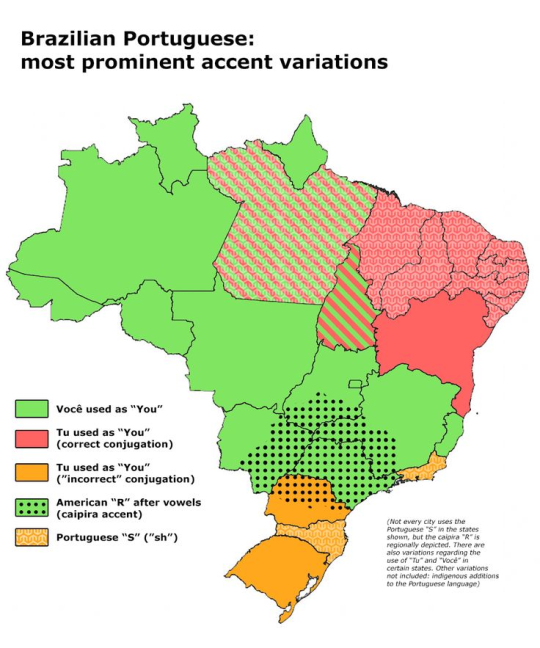
And of course, the formal “you” in Brazil is the same as in Portugal.

Summarized (TLDR)
Tu - Singular informal (use it for friends and family)
Você - Not used much and considered uneducated and rude
Vocês - Plural
Vós - Plural (not used much… a bit of an archaism)
27 notes
·
View notes
Text
50 helpful conversational phrases for Portuguese learners #2

31. Não é que não … — It’s not that I don’t …
32. Não te preocupes — No worries
33. Não sejas pateta — Don’t be silly
34. Sabes melhor do que isso — You know better than that
35. Não te preocupes, posso conseguir sozinho — Don’t worry, I can make it on my own
36. Provavelmente não. A não ser … — Not likely. Unless …
37. Por nada em especial — No reason in particular
38. Por que é que perguntas? — Why do you ask?
40. Como queiras — Suit yourself
41. Esquece / fica assim — Skip it / Never mind
42. Nunca me ocorreu que … — It never occurred to me that…
43. Só queria o melhor — I meant only the best
43. Mete-te na tua vida — Mind your own business
44. Pensa nisso — Think it over
45. Café? — se não houver problema — Coffee? — If it is no bother.
46. Estás no caminho certo — You are on the right track
47. Vamos lá, vamos acabar com isso — Come on. Let’s get this over with
48. Tanto faz — Whatever
49. Vamos fazer o seguinte — Here’s what we’ll do
50. Não sei — It beats me
52 notes
·
View notes
Text
Traveling in Portuguese
【 general 】
o seguro | insurance
a bagagem | baggage
declarar | to declare
a alfândega | customs
fazer o check-in | to check in
a paragem | stopover
a plataforma | platform
o voo | flight
【 adventure 】
a aterragem | landing
a aventura | adventure
a bússola | compass
a descolagem | take-off
os binóculos | binoculars
【 suitcase 】
o bilhete de avião | plane ticket
a escova de dentes | toothbrush
o cartão de crédito | credit card
o carregador | phone charger
o protetor solar | sunscreen
a pasta de dentes | toothpaste
o dinheiro em espécie | cash
o livro | book
os óculos escuros | sunglasses
a maquiagem | makeup
o passaporte | passport
o pente | comb
a tomada | power plug
o adaptador | adapter
a roupa interior | underwear
a mala | suitcase
a roupa | clothes

34 notes
·
View notes


